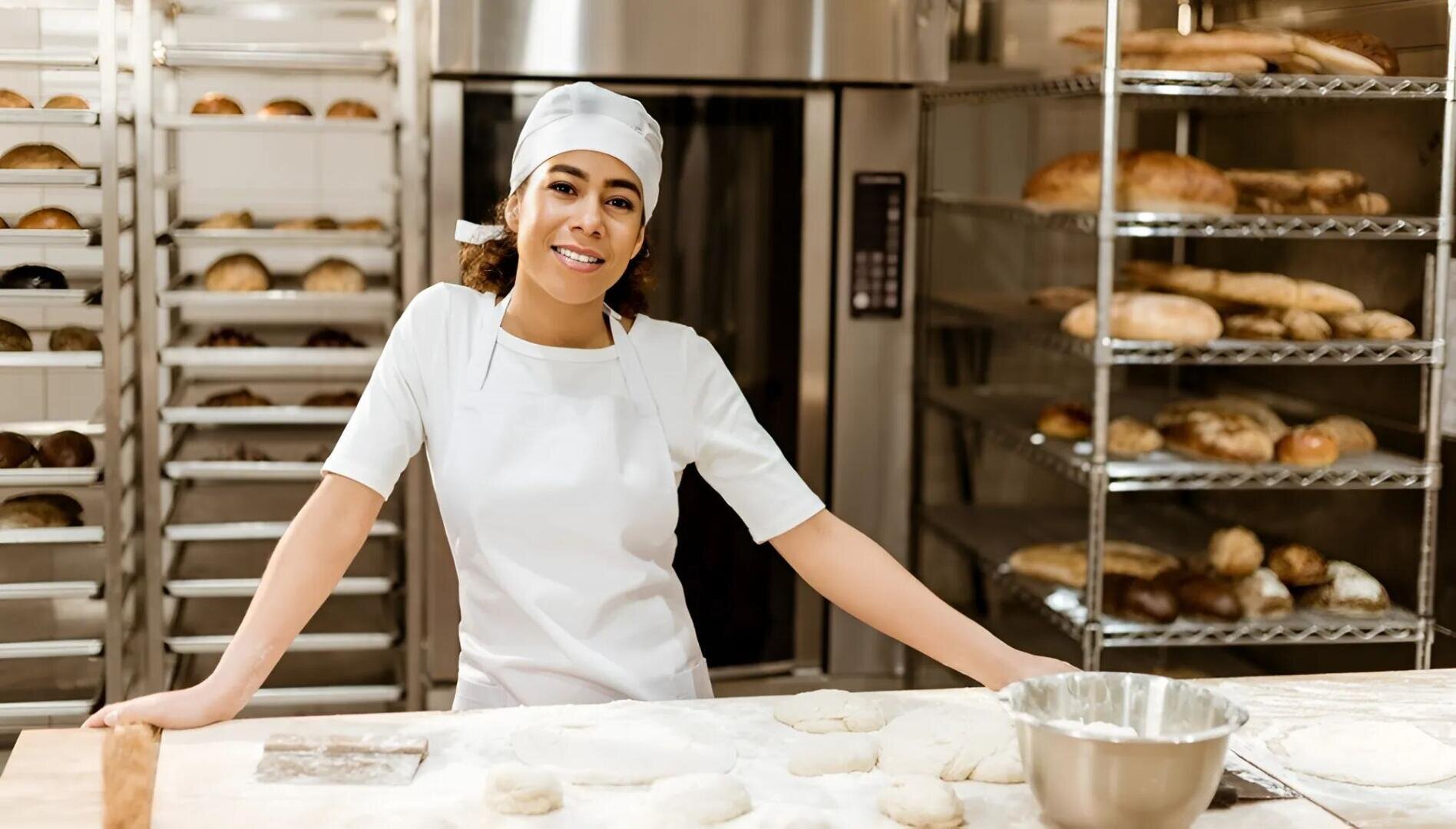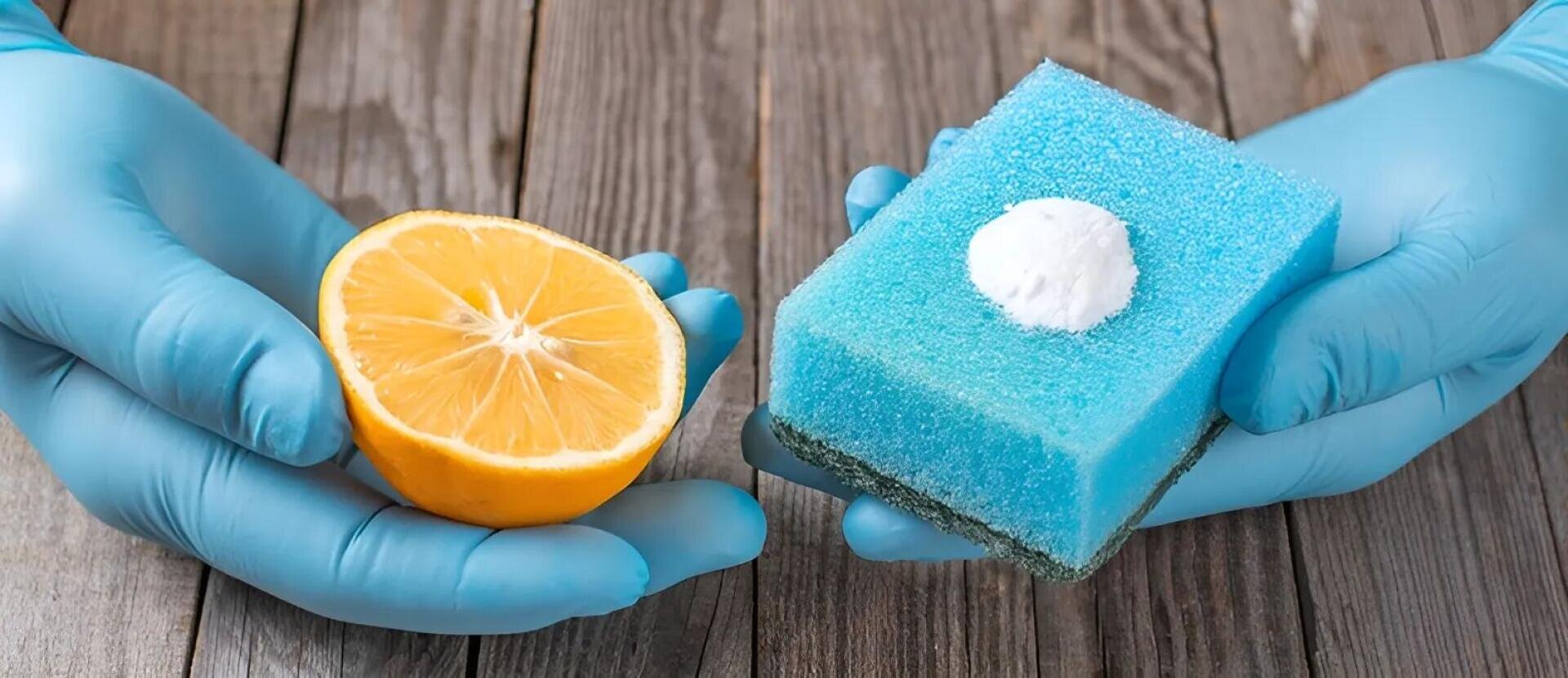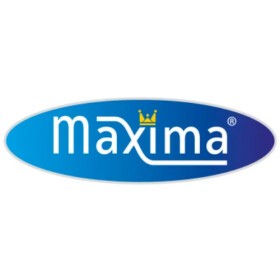How to clean and maintain your commercial oven
Commercial ovens are essential in professional kitchens, often the most used equipment. Regular cleaning and maintenance prevent breakdowns, ensure top performance, and extend the oven’s lifespan.
How often should you deep clean your professional oven?
Commercial ovens typically require daily cleaning and wiping, with deeper cleans scheduled weekly or monthly, depending on usage. Cleaning residues of food and fat at the end of each cooking cycle is crucial and can help prolong periods between deep cleanings. The frequency of oven deep cleaning is influenced by its usage. Daily wiping is necessary for restaurants with continuous oven operation, accompanied by weekly or twice-a-week deep cleans. Smaller establishments may find monthly deep cleans sufficient.
The type of food being cooked also influences cleaning frequency. Cooking items at a high temperature in grease or sauce that may spill requires more frequent cleaning. Any spills or crumbs left in the oven will continue to cook and affect other dishes. Maintaining your commercial oven properly ensures optimal performance, saving time and money. Although maintenance needs vary by manufacturer or type, here are some general tips to enhance your oven's lifespan.
It’s also important to consult your oven's manual for more detailed maintenance and cleaning guidance.
Tips and advice for deep cleaning your oven
First, it’s important to know when to clean your oven. Signs suggesting the need for a thorough deep clean may include:
- Persistent smells
- Smoking
- Heat loss
Remove your oven racks
Oven racks quickly accumulate grease and dirt during regular oven use, so it’s vital to maintain their cleanliness. Start by taking them out and placing them on a suitable surface. Apply your preferred oven cleaning solution to the racks or soak them in warm, soapy water if you prefer a more natural approach. Leave them for approximately 10 minutes before rinsing.
After soaking, you can scrub the grids with a soft brush to remove any stubborn food residue. Avoid using sharp objects like steel wool, which can damage your racks.
For easy cleaning, Maxima’s oven racks are made from stainless steel and can be placed in the dishwasher. Please note that oven racks made from aluminium are not dishwasher-safe.
Choose an appropriate and safe professional oven cleaner
If you frequently use your oven, spills and splatters from cooking will likely occur. Opting for a heavy-duty oven cleaner as the quick fix may seem tempting, but it's not always the safest choice. We advise against using toxic commercial cleaners whenever possible.
It's crucial to note that numerous store-bought cleaning solutions may contain harmful chemicals, such as sodium hydroxide. Avoid solvents or petrol-based cleaning agents, which may leave harmful residues or damage the machine. Instead, we suggest using a mild food-safe detergent or natural methods, such as baking soda and vinegar.
Clean the interior
After choosing a safe oven cleaner, distribute the solution evenly inside the oven (concentrating on tough stains) and let it sit. This will help to dissolve grease and food residue in your oven. Afterward, wipe the interior with a non-abrasive sponge or soft wet cloth.
Tip: If opting for a natural cleaning approach, we suggest leaving the solution for a few hours to lift all the stubborn dirt and grime effectively.
With Maxima’s convection ovens , you can remove stubborn residue by placing a bowl of water in your oven and heating it to 200ºC. Let it cool down again and let the steam loosen the food residue. Afterward, you can wipe it off with a clean cloth.
Clean the exterior
All Maxima ovens are made from stainless steel, which makes it easy to keep the outside of your oven clean. A soft cloth, warm water and a mild detergent can wipe the smooth surfaces quickly and thoroughly. Avoid using abrasive sponges and harsh chemicals that can damage the inside of your oven. To clean the door glass, you can simply wipe it down with some warm water.
Inspect and clean the oven fan grid
Most commercial ovens come with a cooling fan, which should also be cleaned daily, depending on how often you use the oven. Regularly cleaning the grid around the fan is essential to prevent grease and fat buildup on the blades. This buildup can diminish motor revolutions, resulting in decreased airflow and dangerous mechanical strain on the motor. You can easily clean the oven fan grid with a soft brush.
Lastly, check the oven door seal to ensure no heat escaping. Then, make sure there are no food particles around the inside and outside of the oven that can prevent the door from closing. Examining ventilation and air circulation is also recommended to ensure no obstructions.
Finally, replace your oven racks and other accessories in the oven before switching it on.
Day to day maintenance for your oven
While regularly cleaning your oven is crucial for maintaining its efficiency, daily cleaning is also important. This practice makes deep cleaning tasks easier and guarantees your oven functions optimally, promoting hygiene and safety. Various steps can be taken for general maintenance. Quickly cleaning spills instead of leaving them to accumulate is a good starting point. After the oven has cooled down, use a damp cloth to wipe away any residue.
It's advisable to prevent spills from occurring by covering dishes or bakeware. Simply cover your oven dishes with foil or a lid to avoid any grease or liquid from splattering.
Cleaning tips for different types of ovens
Convection ovens: Remember to prioritise cleaning the intake fan in your convection oven. This fan can pose various challenges, such as a loose hinge or stuck food particles. It's advisable to clean the fan separately every week and ensure the hinge secures it correctly.
Pizza deck ovens: The stone plate of your pizza oven may accumulate ashy clumps and blotches from the dough. To clean it, use a dry cloth or a slightly damp sponge. When washing, you mustn't use too much water so water droplets don’t get into the stone plates. The housing of Maxima’s professional pizza ovens is made from stainless steel and can easily be wiped down.
Combination ovens: Combi steam ovens integrate a standard oven, convection oven, and steamer into one unit, requiring maintenance for each function. Like a convection oven, the fan must be regularly removed and cleaned. The oven racks must also be cleaned daily. It’s also important to regularly empty and descale the steamer.
Tip: To avoid having to descale your equipment regularly, you can purchase a water softener. Water softeners help reduce limescale build-up in appliances and pipes. Limescale can cause appliances to become less efficient and can even cause damage to them over time. Using a water softener can reduce your maintenance costs and extend the lifespan of your equipment.
In the end, cleaning the oven may not be at the top of anyone's favourite tasks, yet it remains a crucial aspect of operating an efficient commercial kitchen. Remember to schedule regular cleaning daily, weekly and monthly to prevent any oversights in the cleaning process. Following these practices for maintaining and cleaning commercial ovens will not just extend the lifespan of your equipment but also enhance the safety of your kitchen and food.
If you have any questions about maintaining your Maxima oven, our team of technical specialists is available to offer maintenance advice. They can guide you on properly caring for your equipment, troubleshoot any issues that may arise, and offer tips on extending its lifespan.
Always refer to the manufacturer’s manual for accurate cleaning and maintenance details concerning your oven.
Looking for a high-quality oven that is easy to clean? Shop Maxima’s range of commercial ovens today!






